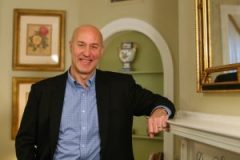The virtual conference was attended by nearly 450 people from 200 institutions pondered what forward-looking engaged citizenship will look like in different disciplines.
How students learn and educators teach has undergone a significant metamorphosis since the start of the COVID-19 pandemic. Outside of COVID, today’s students are constantly affected by many dynamic societal changes, including climate change, racial and civil equities, and threats to democracy.
The objective of this year’s Teaching & Learning Conference was to better prepare instructors on how to educate the future generation of leaders through analyzing teaching approaches and curricula, among other areas of higher education.
“The theme grew out of a lot of conversations that we’ve had with faculty over this year about student engagement,” said Kelsey Bitting, associate director of the Center for the Advancement of Teaching and Learning (CATL) and assistant professor of environmental studies.
Fatigue is an understandable and fitting result of what society has been through in the last few years. That fatigue is not lost on students either, as they have struggled to get back in the swing of learning pre-COVID.
“Given everything that we’ve all been through over the last two years, it’s hard to deny the importance of engaged citizenship,” Bitting said. “But we also think that that’s key to helping our students re-engage and prepare for what is a very uncertain and rapidly changing world and become leaders.”
With the theme of “Educating Engaged Citizens for an Uncertain and Changing World,” the 18th Teaching and Learning Conference was held virtually on Monday, June 6, and was hosted by the CATL and Teaching and Learning Technologies (TLT). With 48 speakers, including faculty from Elon and other institutions, many topics from storytelling through data to community-engaged research were covered.

Paul Hanstedt, the founding director of the Houston H. Harte Center for Teaching and Learning at Washington & Lee University in Virginia, gave the keynote address for the event. Hanstedt’s 2018 book, “Creating Wicked Students: Designing Courses for a Complex World,” was the inspiration for his presentation to the Elon community.
Hanstedt said for wicked students to be created, changes have to be made in the educational process. General education reform, eliminating GPAs and class rankings and making learning meaningful are some necessary steps in the right direction, according to Hanstedt.
“If a student is attempting to grow, to shift, to move, do we gain anything by fixing them in a box and then saying, ‘Oh, by the way, we want you to have a growth mindset,” Hanstedt said. “Our graduates are going to enter a messy, complicated world. They need to be able to engage in change. They can’t simply be passive participants. Many of our educational structures don’t allow them to move beyond passivity. We can change this; we must change this.”
The plenary session was moderated by Kate Moss, instructional technologist, and featured Elon faculty Assistant Professor of Human Service Studies Vanessa Drew-Branch, Associate Professor of Communication Design Phillip Motley and Assistant Professor of English Dinidu Karunanayake.
“We have student service-learning projects that are focused on how can our students not only gain from the community, but the community also gain from our students,” Drew-Branch said when speaking about how she puts liberation into action in her classrooms.
Motley spoke about the Study Away course within the Interactive Media master’s program, “Interactive Project for the Public Good,” and how students come away from that experience as more thoughtful global citizens.
“I’ve taught this course about 10 times … and what students remember years later is the opportunity to work with people in an intimate way within their place-based environment,” Motley said. “This class has technological tools and technologies are involved. But the outcomes, to me, are much more human-centric, community-centric, it’s much more authentic and immersive.”
In his course, “Memory, Human Rights and Global Anglophone Literature,” Karunanayake made sure to create an enabling classroom and urged students to critically reflect on their own biases and consider reading and composition as ethical imperatives.
“I argue that the pandemic-era classroom must integrate enabling activities that help students to meaningfully evoke empathy with interdisciplinary inquiry and transformative composition,” Karunanayake said.
Bitting said the decision to hold the conference virtually again this year was made because it allows more people from all over to attend and get a glimpse into some of the innovative teaching practices at Elon. With 450 registrants from 200 institutions in attendance for the conference, the conversation on creating engaged students is broadened further than if it were an in-person event.
“We are number one in teaching and learning in the U.S., so other faculty want to hear what we’ve been trying out here at our institution, what our faculty are excelling at and what new frontiers they’re exploring,” Bitting said.
Following the Teaching and Learning Conference, CATL will host reading groups throughout the summer of Hanstedt’s book, “Creating Wicked Students.”


